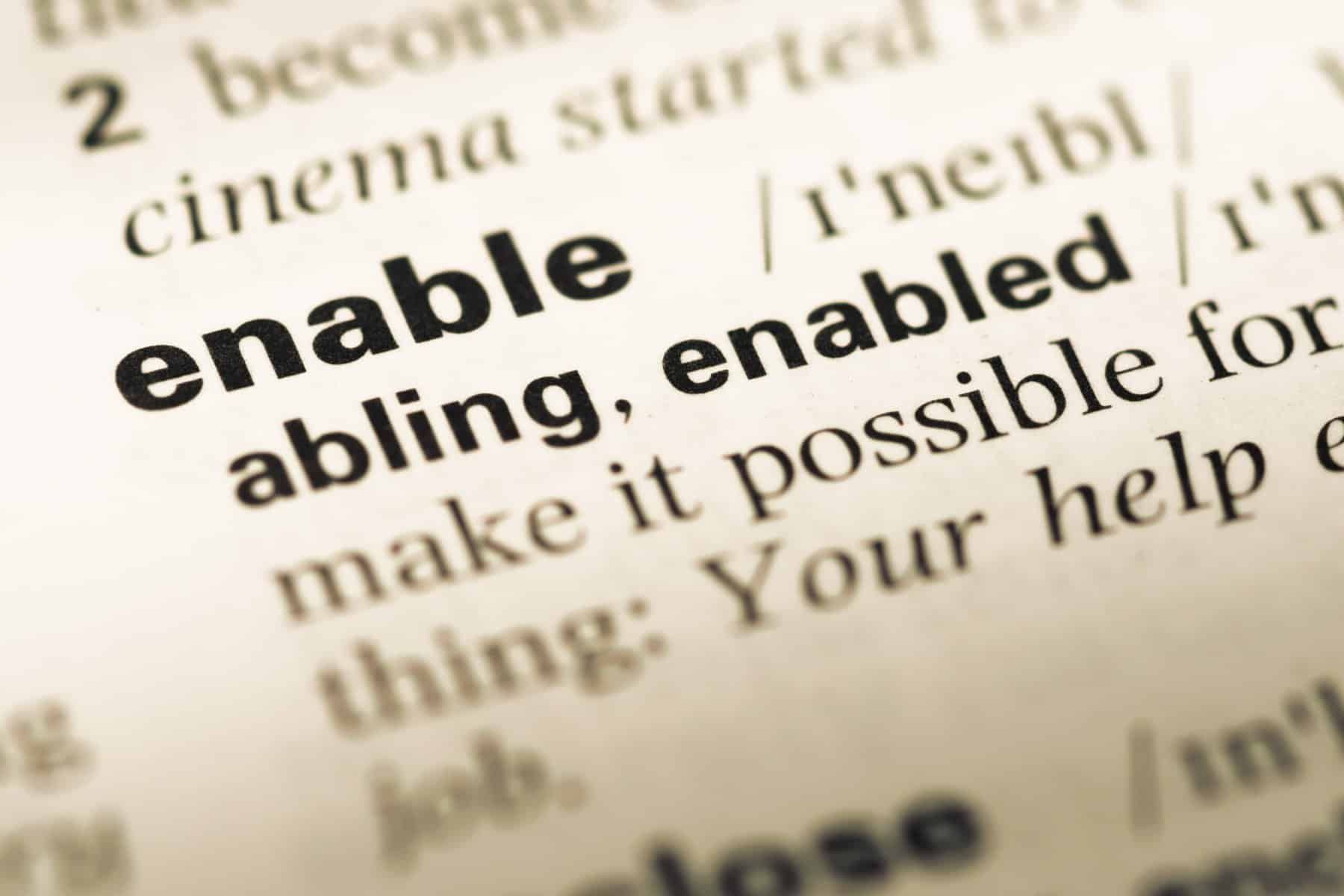
Enabling an addiction can be harmful for those who are struggling, as well as the enablers themselves. Someone who is contributing to a loved one’s continued self-destructive behaviors could be considered to be enabling them.
This can take many forms, and it may sometimes be unintentional. Enabling usually occurs in a loving place. However, it contributes to codependency and can make for an unhealthy relationship between the person struggling and the person who is contributing to, or enabling, the addiction to continue.
What Does Enabling Look Like?
As previously stated, enabling an addiction can take many forms. Understanding some ways that someone may be contributing to the maladaptive behaviors their loved one is exhibiting can help to change the circumstances. In the beginning, providing a loved one who is struggling with financial help or with shelter may seem like helping them get on their feet.
However, continuing to be a safety net for them, so they can continue these destructive behaviors, is contributing to their addiction. The reality is, loved ones often want to save the person who is struggling.
By enabling them to continue using drugs and alcohol, it provides them with the means and capability to manipulate those who are helping them. In the end though, the individual struggling with addiction has to make a decision to help themself.
Signs of Enabling
The signs of enabling behavior that someone should look out for in the event they suspect themselves of enabling a loved one can include:
- Avoidance: turning to work, school, exercise, food etc in order to avoid facing problems with their loved one and maintain peace.
- Denial: avoiding admitting there is a problem with a loved one.
- Justification: agreeing with the person’s justifications for their destructive behaviors.
- Minimalizing: thinking the loved one’s addiction is “not that bad”.
- Control: attempting to withhold money or car keys, controlling who they can and can’t see/hang out with.
- Using with them: using with or allowing the addicted loved one to use at home in order to “keep an eye” and make sure they are safe.
- Taking their responsibilities: watching their kids, paying their bills, and providing them food and shelter so they can continue using drugs and alcohol.
How to Stop Enabling
Often, those displaying signs of enabling behavior need to seek help in order to end the behavior. There are different options that can foster healing and help break these behaviors. Cognitive-behavioral therapy (CBT) can help to retrain the brain from using negative thoughts and behavioral patterns into using healthy and positive ones.
There is also the existence of recovery programs that can assist with codependency. Codependents Anonymous (CoDA) could be beneficial to learning to set healthy boundaries and break the cycle of destruction within a relationship.
Staging an Intervention
Staging an intervention is a constructive way that someone could put a stop to enabling an addiction. Providing a safe space, with a professional, to fully express feelings surrounding a loved one’s behavior can help the person enabling them to begin setting healthy boundaries. It also encourages the loved one to accept professional help in order for them to heal and begin recovering from their addictions.
Establishing Boundaries
Healthy boundaries are essential for someone who has an addicted loved one. These boundaries will not only help the person who is struggling with drugs and alcohol to begin seeking help to get better, but it can also provide a sense of peace for their loved ones.
Setting healthy boundaries and sticking to them can help an individual to restore order in their life that has been disrupted by their loved one’s addiction.
Talking to a Loved One About Rehab
Rehab is a beneficial option for those individuals who are struggling with substances. It helps to remove the substances safely and effectively, as well as begin the process of healing. Rehab can help provide a stable and productive foundation to loved ones beginning life without drugs and alcohol. It is important to note a rehab that can help a loved one address their specific needs is crucial to them being able to receive the right help and support.
Tough Love
Tough love can be hard to implement. When a loved one can stand their ground, hold their boundaries, and stop their enabling behavior, it is often a turning point in the life of the individual who is struggling. When they realize the person who has contributed to their use for a long period of time has stopped, this can lead to them getting much-needed help in order to recover.
Treatment and Therapy Help Makes a Difference
Enabling a loved one who is struggling with addiction to drugs and alcohol can be detrimental to them. Any individual who is struggling with substances can seek professional help and begin to heal and break free from the chains of addiction. Finding the right kind of care for someone struggling makes a difference in their lives.
At Empowered Recovery Center, we provide care for these individuals. Our addiction treatment center’s team of trained professionals strives to provide this much-needed care in order to make the process easier and safer for those struggling.
Call us today and help your loved one begin a journey of recovery.
Program Links
Check Your Insurance Benefits
Empowered Recovery Center is dedicated to providing addiction treatment services to the greater Atlanta area including Acworth, Alpharetta, Canton, Cartersville, Kennesaw, Marietta, Powder Springs, Sandy Springs, and more.
Resources
Connect With Us
-
Empowered Recovery Center
3651 Canton Road,
Marietta, GA 30066
